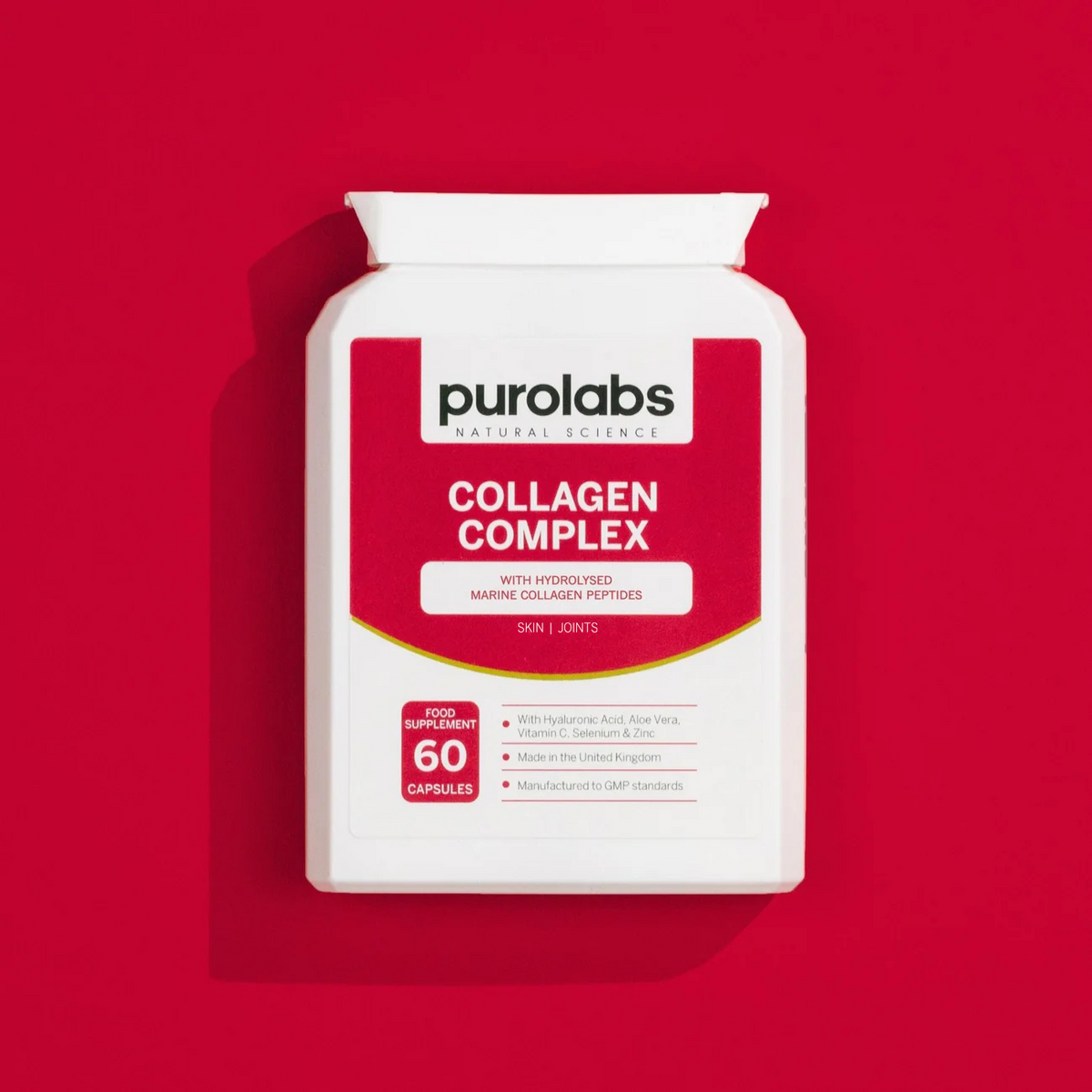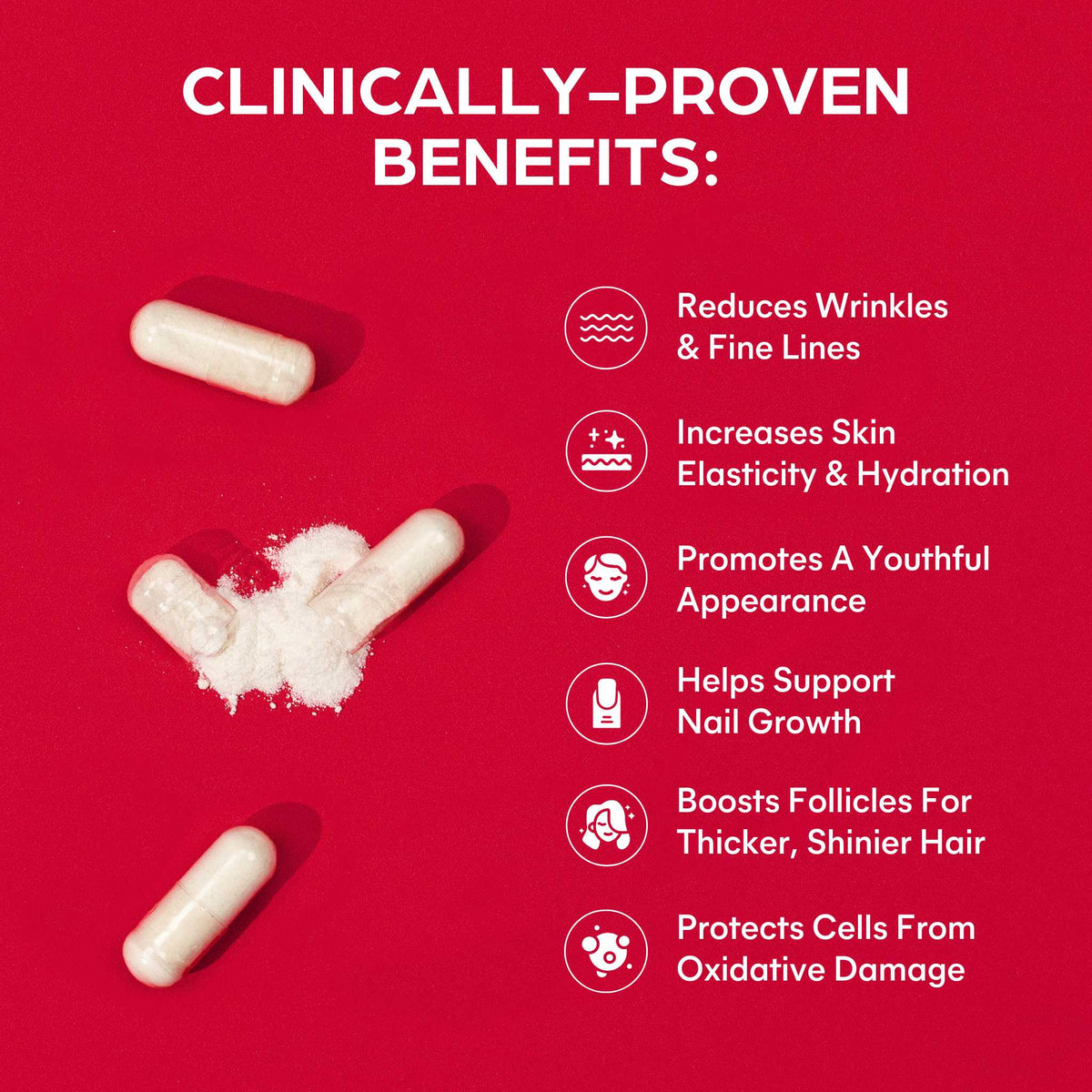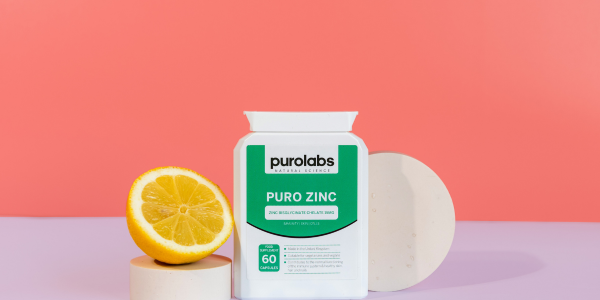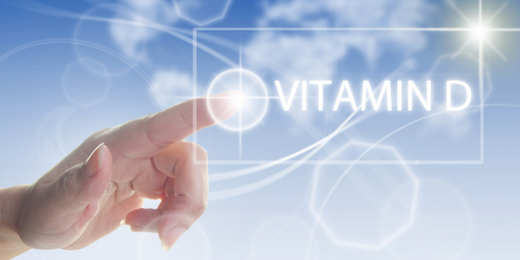Zinc is a key (but often underrated) essential mineral, found in foods, cosmetics, medicines and dietary supplements.
In fact, zinc is found in many places, from the Earth’s crust, air, water, soil, plants and animals to automobiles, airplanes, appliances and even surgical tools! Zinc is an incredibly versatile and intriguing element, contributing to our external and internal environment.
Our bodies can store up to 2g of zinc, mostly in skeletal muscle and bone. However, we cannot produce it meaning that we need to regularly ingest zinc to meet the body’s requirements for healthy functioning1.
What makes zinc so underrated, is the sheer breadth of health benefits we can attribute to this multi-functional mineral. Zinc is one of the most commonly used co-factors (also known as synergistic nutrients) needed for many biological processes throughout the entire human body.
Zinc help supports the function of various other nutrients to help with2:
- Reproductive health
- DNA metabolism
- Antioxidant defences
- Gut lining support
- Cell division and growth
- Wound healing
- Carbohydrate metabolism
- Sensory health: Vision, taste, smell3
What’s the recommended daily dosage of zinc?
The UK government recommended daily intake of zinc is 7mg for women and 9.5mg for men4.
What Foods Contain Zinc?
Zinc is found in many dietary sources, including5:
- Seafood (with an 85g serving of oysters containing 5x the recommended daily intake)
- Grass-fed beef
- Beans & legumes
- Eggs
- Sardines
- Nuts and seeds: pumpkin seeds, pine nuts, cashews, flax seeds, brazil nuts
- Whole grains: oats, brown rice, quinoa, barley
As zinc is a little more difficult to obtain from plant sources, if you are vegan, or you show signs and symptoms of zinc deficiency, consider supplementing with zinc for a concentrated and consistent therapeutic dose of this essential mineral.
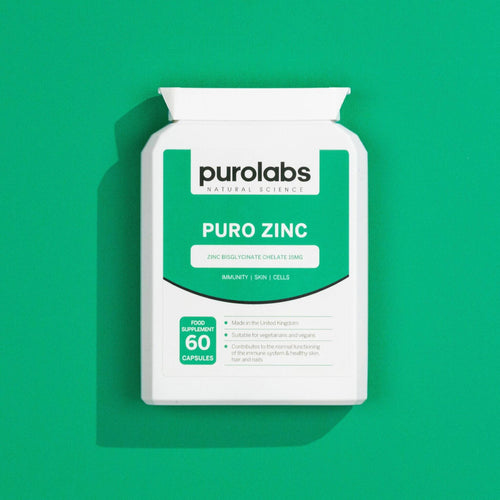
Zinc
If you are unsure as to whether supplementing with zinc is for you, speak to our dedicated customer care team, in-house nutritionist or reach out to a trusted registered health professional for support.
So, let’s get onto a few (of the many) benefits that zinc has on human health…
Supports Hormonal/Reproductive Health
This incredible mineral is just as important for both male and female hormonal and reproductive health.
Studies have linked sufficient zinc intake to boosting egg quality, helping to maintain egg health and maturation which is vital for a healthy conception. Not only is zinc important for female reproductive health, but it is also a vital mineral to help support sperm production, performance and count.
Zinc has also been shown to support and regulate hormones such as progesterone and estrogen and is also an important nutrient for testosterone production.
Zinc quite literally helps to build and balance our key hormones and is used in almost every biological process required for the many life changes our bodies go through from puberty, to pregnancy to menopause6.
Boosts Immunity
Along with vitamin D, Zinc is one of the most well-known nutrients used in the fight against infection, including colds and flus. Due to its popularity for immune health, it is commonly used in lozenges and over the counter natural cold and flu medicines.
A recent study concluded that zinc may reduce the length and severity of the common cold7.
Zinc has been well studied for its impact on immune function. This essential mineral has been shown to help protect the skin barrier from infection and inflammation by moderating gene regulation within white blood cells to help our immune system detect and destroy invading pathogens8.
Zinc has been used for centuries to topically treat wounds and infections, including wounds from battle along with infections from animal bites. Whilst we wouldn’t recommend topical zinc for battle wounds or even particularly nasty cuts, zinc has actively been shown to help repair the skin membrane, tissue regrowth and scar/new skin formation, with zinc commonly found in topical cosmetic products linked to scarring9.
Helps Fight Acne & Other Inflammatory Skin Conditions
Zinc is a key nutrient that I will commonly reach for when working with clients with inflammatory skin conditions.
As mentioned, zinc helps to support the skin barrier which is vital for anyone suffering with an inflammatory skin condition. We know that a compromised skin barrier is vulnerable to infection, dryness and irritation – which we all know impact the appearance of many common skin conditions like acne, eczema and psoriasis.
Not only that, but the hormone balancing effects that zinc has on conditions like PCOS and endometriosis make it effective for improving acne which is a common side effect of these conditions10.
Zinc is an antioxidant, helping to mop up free radical damage caused by modern living. We know that any signs of redness on the skin is an inflammatory response, with antioxidants being key to help support the body’s ability to reduce inflammation and support healthy skin.
Vital for Nervous System Function
Zinc has been shown to be essential for the creation, growth and maturation of neurons (nerve cells) from early foetal and childhood development through to adulthood11.
In fact, zinc is one of the most abundant metals ions in the central nervous system, supporting brain function and psychological health. Neurons send messages all over the human body to allow us to walk, talk eat and think making zinc intake crucial for how we think, feel and act.
Studies show a potential link between zinc deficiency and neurodegenerative diseases like Parkinson’s, Alzheimer’s and even brain injury12.
Essential for Sensory Support
Zinc is a carrier nutrient for vitamin A, helping to support its transportation to the various tissues within the human body including our eyes.
The human retina has high concentrations of zinc, with studies linking zinc supplementation to a delay in the progression of age-related macular degeneration (AMD). In fact, one large study with a follow up period of 10 years saw a 44% lower risk for AMD in those who supplemented at least 15mg zinc daily13.
Studies have also linked a loss of taste and smell to zinc deficiency14, therefore if you suffer with a loss of smell or taste, I would strongly recommend that you get tested for zinc deficiency.
A Word of Warning
Although we need to ensure that we are taking zinc regularly to reap the nutritional benefits of this mineral, it can interact with various medications. Zinc has been shown to interact with antibiotics, penicillamine (a drug used to treat rheumatoid arthritis and Wilson's disease) and medications with a diuretic effect15.
If you are taking medication, ensure that you consult with a health practitioner before supplementing.






